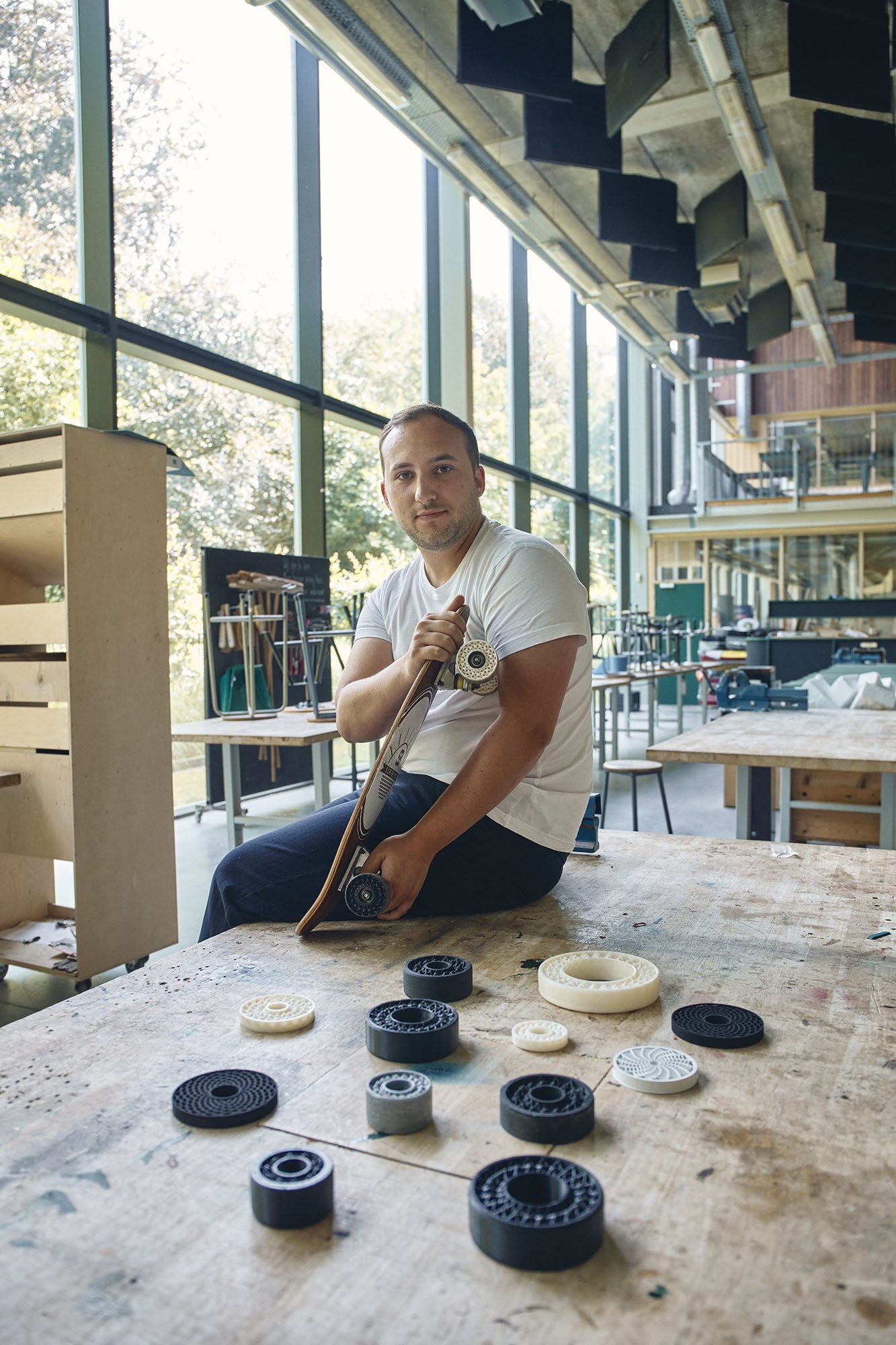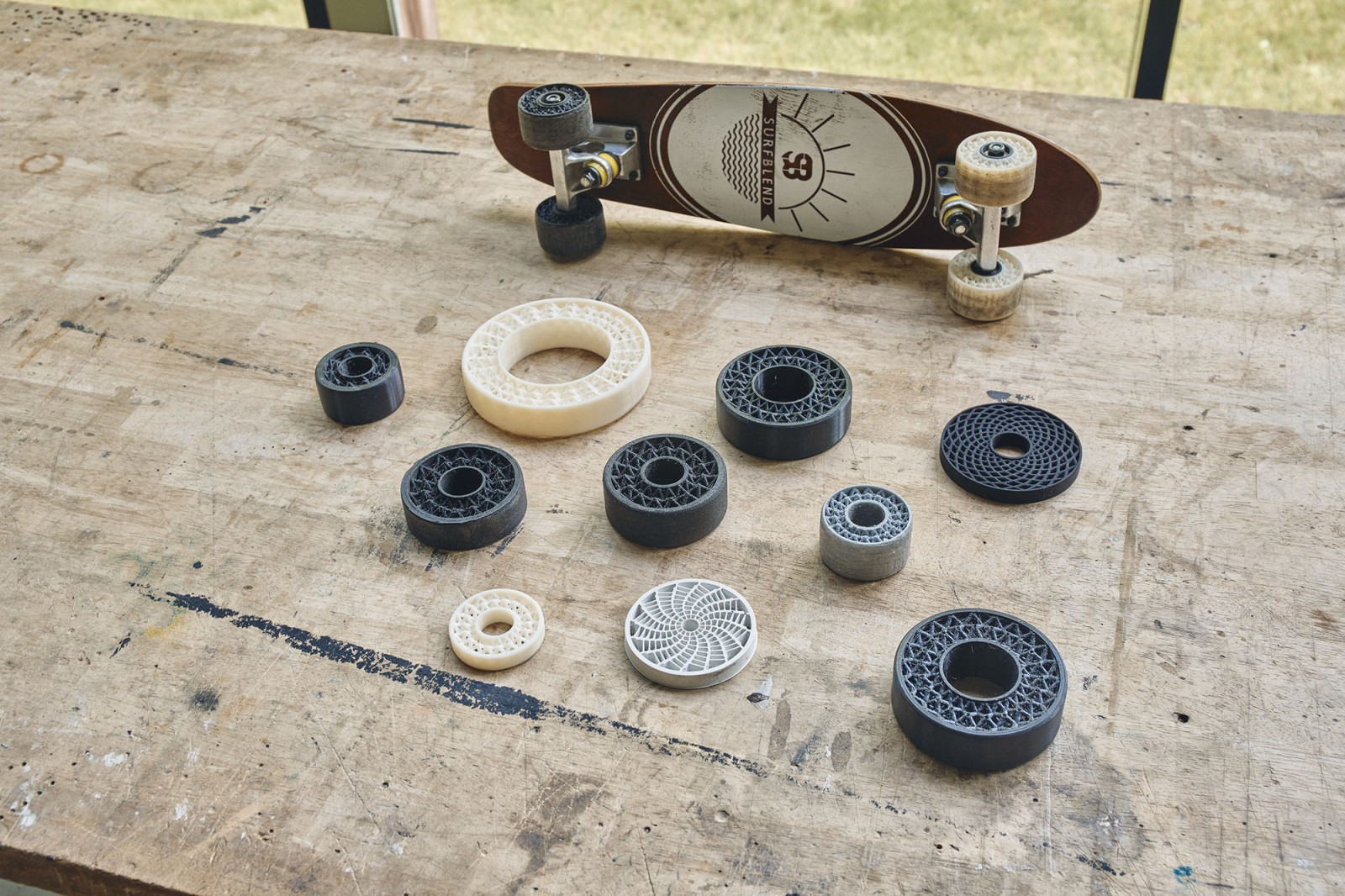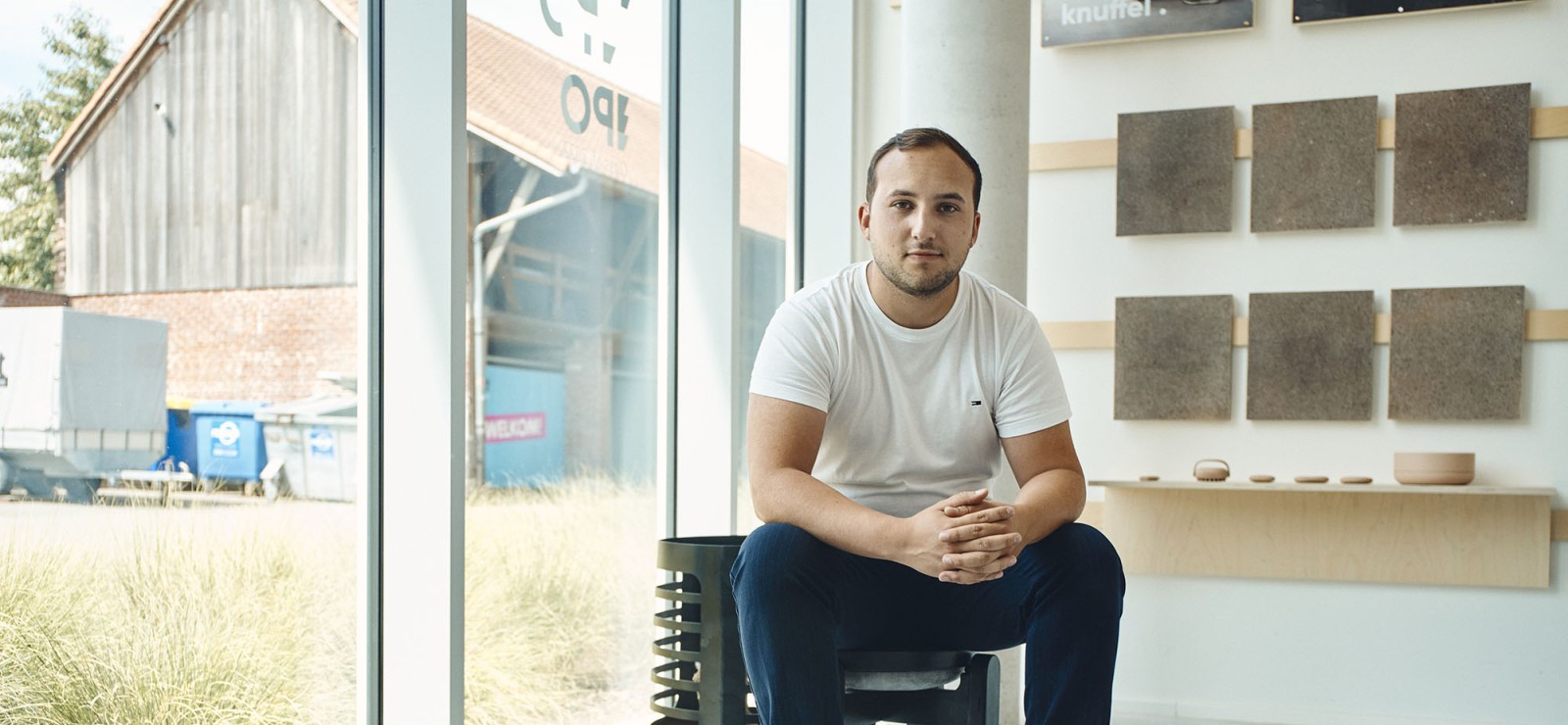Revolutionary: that’s the least you can say about Ghent University student Wannes Van Laerhoven’s invention. He designed a new type of tire: airless, sustainable and suitable for an infinite number of applications – from wheelchairs to electric kick scooters. No surprise, then, that he won 2 out of the 4 prizes handed out at the prestigious Circular Economy Challenge and the Ecodesign Award for students.
In just a few months’ time, Wannes Van Laerhoven used 3D printers in his student room to design a high-quality, airless tire made up entirely of recycled materials. “For that tire, I used a type of filament which is completely made up of ‘end-of-life products’: worn-out and damaged car tires.”
A tailor-made tire
His first step was to design a prototype of a tire for a penny board. “Pretty soon, I discovered that I could adjust my design very quickly, which made it easy to tailor tires to users’ specific needs,” he says. “Take the tires on a wheelchair, for example: I design them to provide more shock absorption. That way, someone whose leg was just operated on doesn’t get shaken up when he has to ride over cobblestones.”
It all begun in his third year of Industrial Design. Wannes was given an assignment to design a product. “I already had the idea of developing a tire. But my professor thought it was too ambitious.”
From bicycle rim to wheelchair tire
So Wannes kept his ambitions in check, at first, and developed a bicycle rim. “I designed nine parameters that could be used to develop thousands of different bicycle rim formats. I had some simple 3D printers hooked up in my apartment, so I started testing them myself immediately. But I finished my work after only a month, and still had three more to go. So, I went looking for a new challenge.”
Wannes didn’t want to just make something at random. “I wanted to develop something meaningful; help people. That’s why I contacted the folks at Taito, a Ghent-startup that was bringing electric kick scooters to market. It didn’t take long for me to circle back to my tire idea.”
Wannes attended the meeting in the evening, after classes. “I immediately started up my computer and spent the next five hours modelling,” he says. “After that, I fired up my printer and had my first tire by daybreak. It was tiny, but it worked perfectly for a penny board. And I knew that the basic technology could be applied to print larger tires just as easily.”

From lack of funds to big dreams
Unfortunately, practical difficulties sometimes stand in the way of making your dreams come true. Money, for example. “I’d already spent a 1000 euros of my own pocket money. At the time, I also took a job as a product designer at a company in Kortrijk for ten hours a week, but the money that made me wasn’t enough either.”
He decided fortune favors the bold, so he approached Professor Kurt Van Houtte (coordinator of FabLab, Zwijnaard, Belgium). “I pitched him my project and asked him if they would be willing to print for me. I got an email back immediately: the professor thought my project would be perfect for the Circular Economy Challenge 2022. I realized he was right and entered myself immediately.”
Meeting the Mitsubishi CEO
“I entered just in time to qualify for an extra round of feedback,” Wannes continues. “So, there I was, face-to-face with the CEO of Mitsubishi (the Challenge-organizer, ed.) himself. That CEO turned out to be a big believer in his product. “’You’re underestimating the strength of your own product,’ he told me. ‘It has great potential. Dare to dream big.’ For me, it was exactly the extra push I needed to switch things into higher gear.”
Wannes got back to work. But time was against him: he had a very strict deadline, his student job was taking up a lot of his valuable time, and, in the meantime, the exams were approaching fast. “I wanted it to be as good as it could be, so I spent all my evenings at the computer.” Wannes developed code for a wheelchair, a pram, an off-road trolley, and even a Mars rover.

Do!’s good advice
“You’ve reinvented the wheel,” exclaimed Tom Van Damme enthusiastically when presented with Wannes’ invention. Tom is entrepreneurship growth Coach at Do!, the center for student-entrepreneurship at Ghent University. At the time, Tom also coached the students who founded Taito. “I was able to sit down with the people at Do! about four times. They gave me some very good advice. I contacted them immediately, when I heard that I’d gotten through to the final rounds of the Circular Economy Challenge 2022.”
Student & Community Winner
When he found out who the other finalists were, he got cold sweats. “They were from all over the world and had some pretty impressive resumés. One of the finalists was a company with 30 employees! What was one third-year student going to do? But, at the same time, I was sure I could compete,” says Wannes. “To produce my tire, I not only process waste. The tire itself is sustainable. It's easily recyclable and can ride over a dozen nails without having a flat.” In the end, he won both the Student- and the Community Prize.
His next move? To develop a business plan. “Luckily, I don’t have to do that by myself: I’m going to look for motivated people who believe in my product. The challenge prize wasn’t only a 15.000-dollar lump sum: I’m being advised by external partners now too. Besides this, DO! also supports me with guidance.” In other words: today, Wannes dares to dream big.
Read also
Read also
Welcome to the design atelier of the future
The design world on the eve of a revolution: all kinds of recyclable and organic materials are making an entry, in an effort to oust less sustainable materials such as plastic. For example, chairs made of cork, urns made of mycelium or light fittings made of mown grass.
New research centre aims to make our vegetables more sustainable
A large quantity of water, energy, and nutrition is lost during the processing of vegetables and potatoes. Too much water. At a time when we’re trying to minimise waste, and water is a scarce resource, we need to be smarter about how we manage these losses. The VEG-i-TEC research centre is therefore reviewing the processing method from start to finish.
“These ateliers are where we translate science into daily life”
Yannick Christiaens is educational supervisor at the Department of Industrial Systems Engineering and Product Design. He takes us to the product development studio at Campus Kortrijk.



